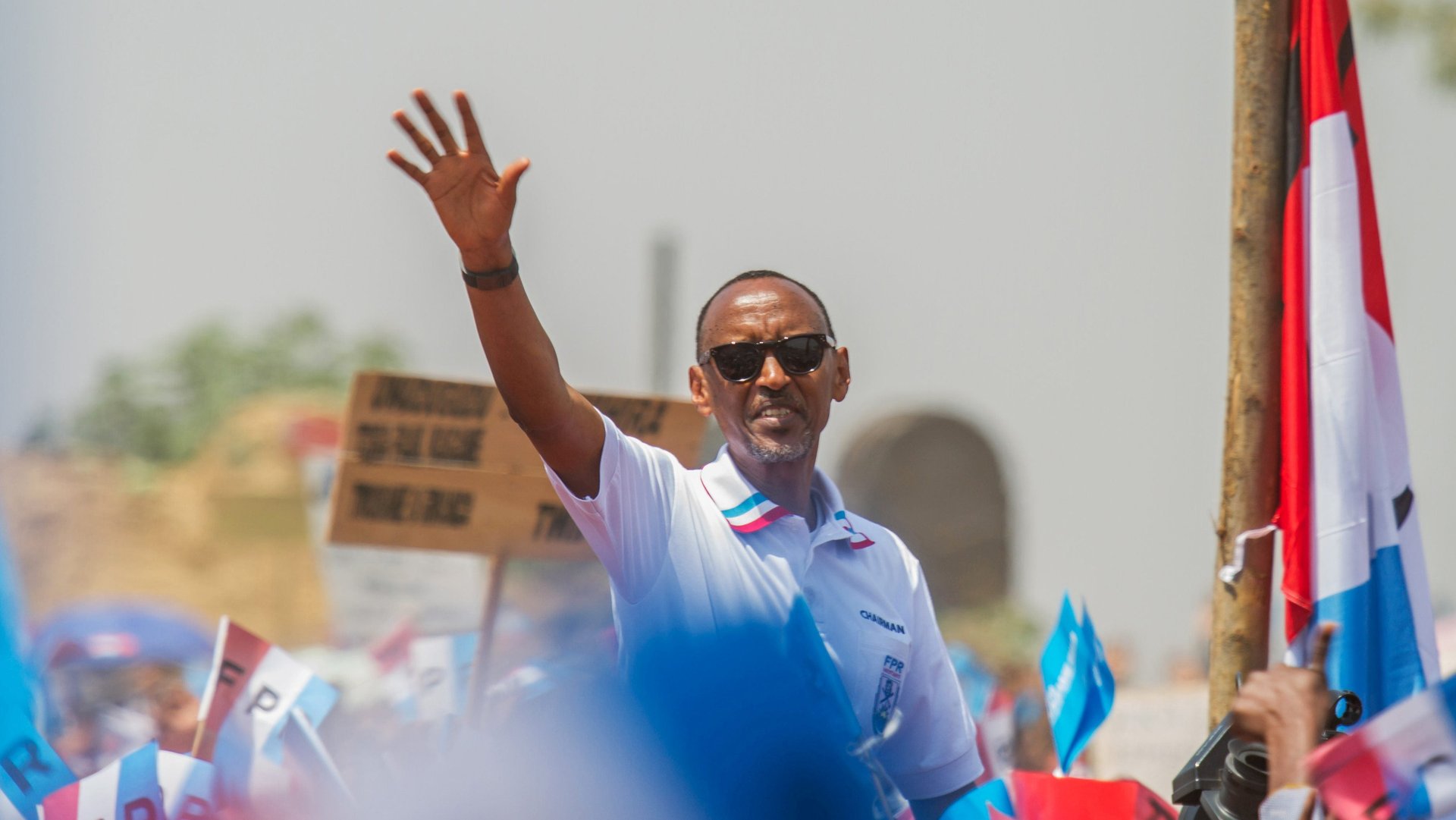Rwanda has re-elected president Kagame with more than 98% of the vote
President Paul Kagame has won Rwanda’s election by a landslide, granting him a third term in office and extending his 17-year rule over the central African nation.


President Paul Kagame has won Rwanda’s election by a landslide, granting him a third term in office and extending his 17-year rule over the central African nation.
The national electoral commission said Kagame had won over 98% of the vote. Frank Habineza of the opposition Democratic Green Party won 0.45% of the votes, while independent candidate Philippe Mpayimana secured 0.72%.
The 59-year-old Kagame has ruled over Rwanda in various capacities since 1994 when his rebel group ended the genocide that killed 800,000 people, many of them from the Tutsi minority group. Kagame first served as defense minister, then as vice president, befored ascending to the top post in 2000 when his predecessor resigned. In 2003, he was officially elected to office under the auspices of a new constitution and was re-elected in 2010 for a seven-year term.
Kagame was not supposed to run this time, but following an August 2015 consultation with “millions of Rwandans”, only ten people were found who opposed a constitutional amendment which took place later that year. The amendment lifted term limits, which could see him rule until 2034. The outcome of the current election was almost certain: the president himself has said that the poll was a mere formality.
Observers say Kagame’s presidency is buttressed by intimidation, with opposition to his government often muted. Critics of the ruling Rwandan Patriotic Front have also been known to disappear or wind up dead in the past. Last month, Human Rights Watch said that Rwandan officials, with the assistance of civilian authorities, were apprehending and “executing” suspected petty offenders as part of a government strategy to spread fear.
On the flip side, Kagame is credited with transforming Rwanda, achieving impressive development gains since 1994. The president has also overseen an agenda that aims to transform the country from a low-income, agriculture-based economy into a service oriented one. Its growing economy employs new technology such as drones, and there are plans to change its capital city of rolling hills and low-rise buildings into a so-called smart city. At 61%, the country is also home to the highest proportion of women in parliament in the world.
On election day, Kagame said that he would work to sustain economic grow th in the country. “This is another seven years to take care of issues that affect Rwandans and ensure that we become real Rwandans who are [economically] developing,” he said.